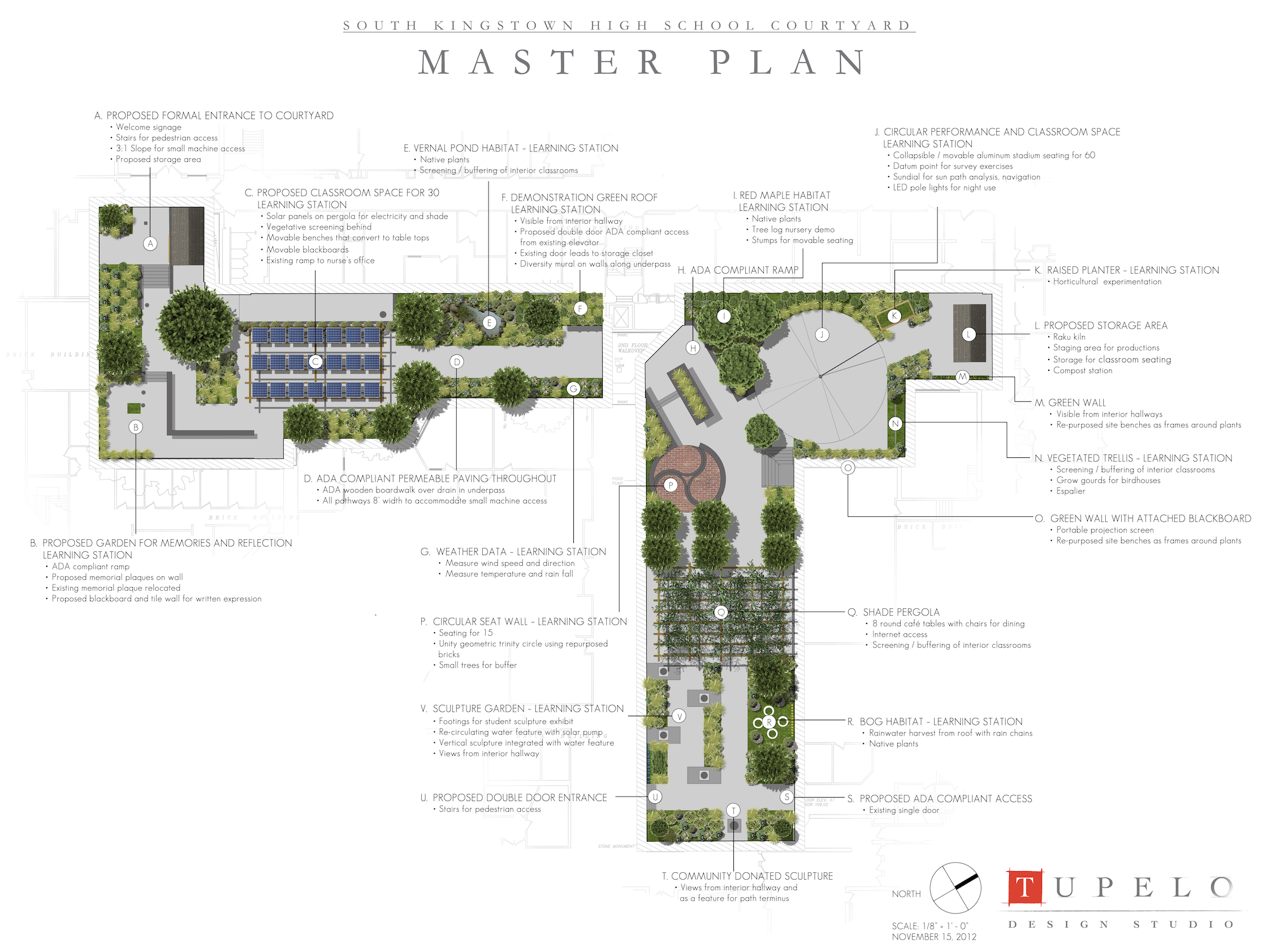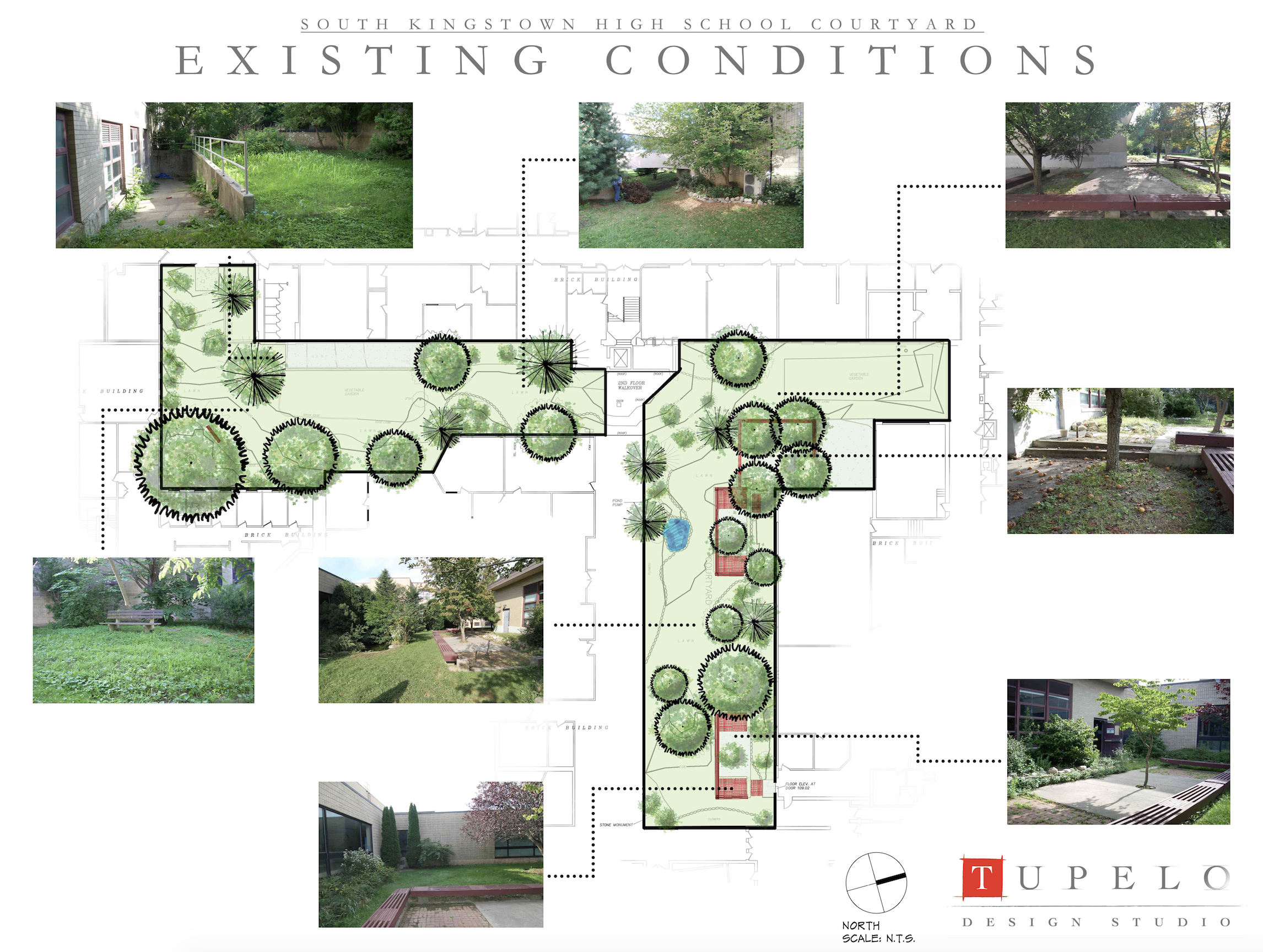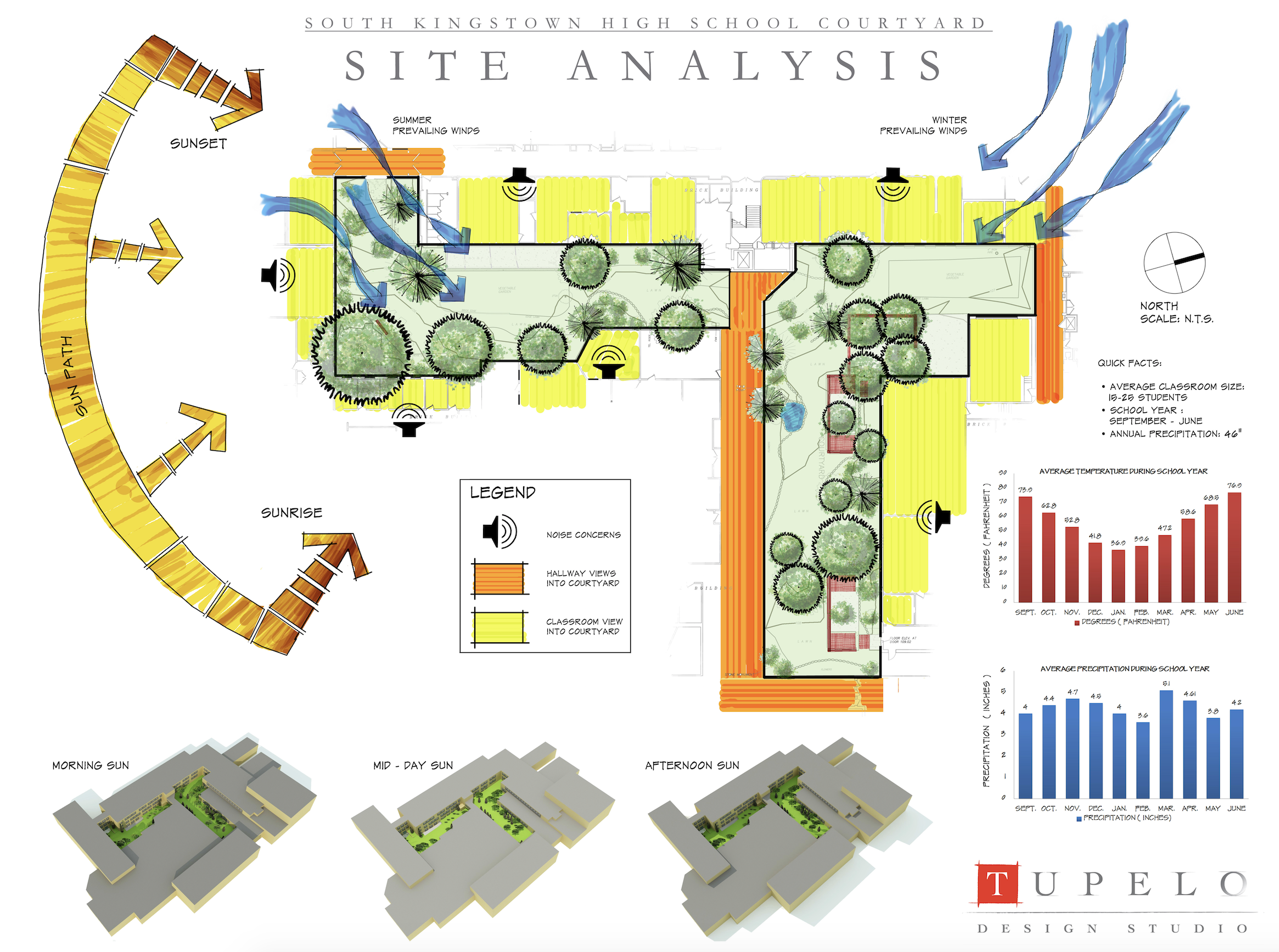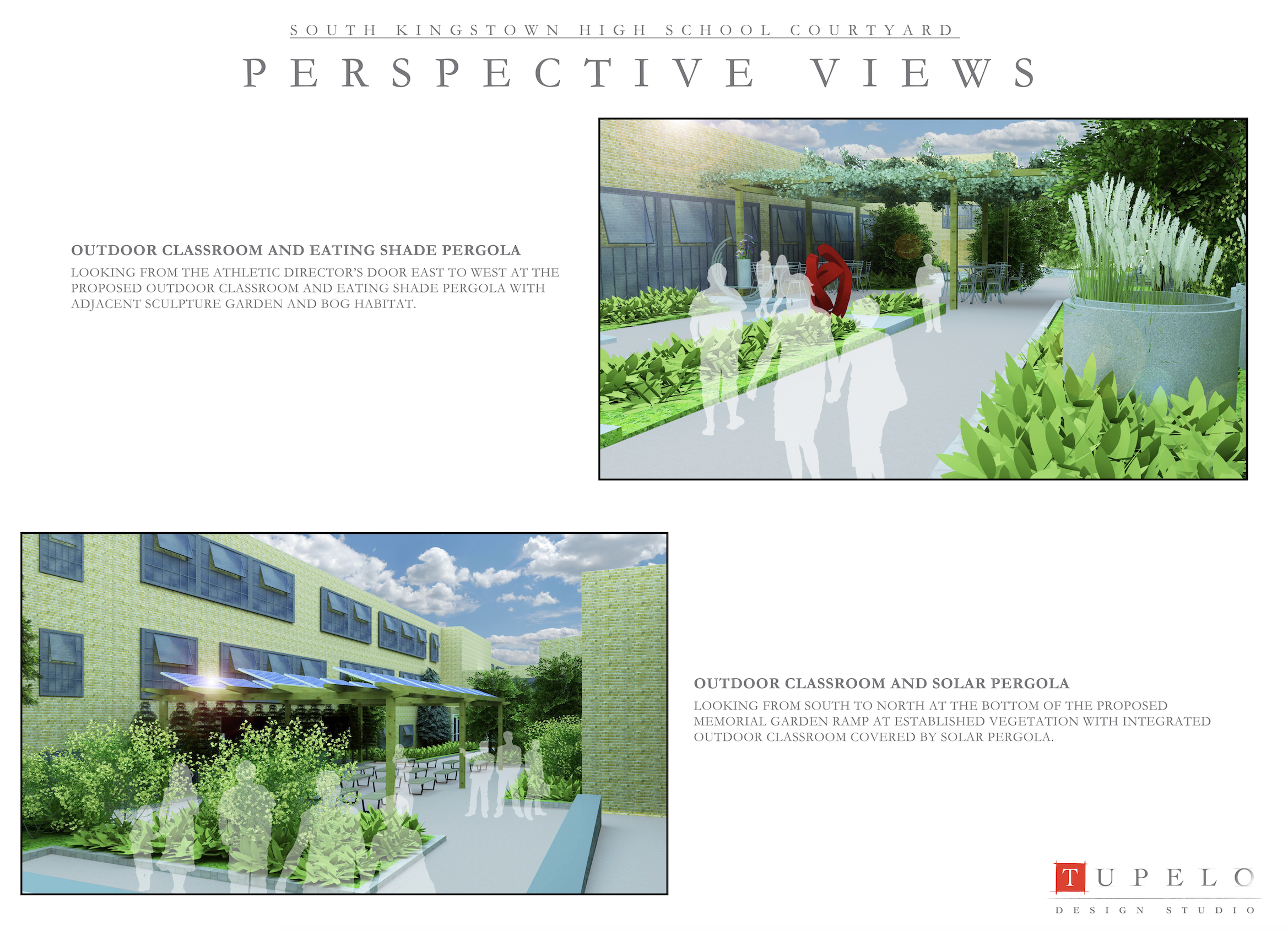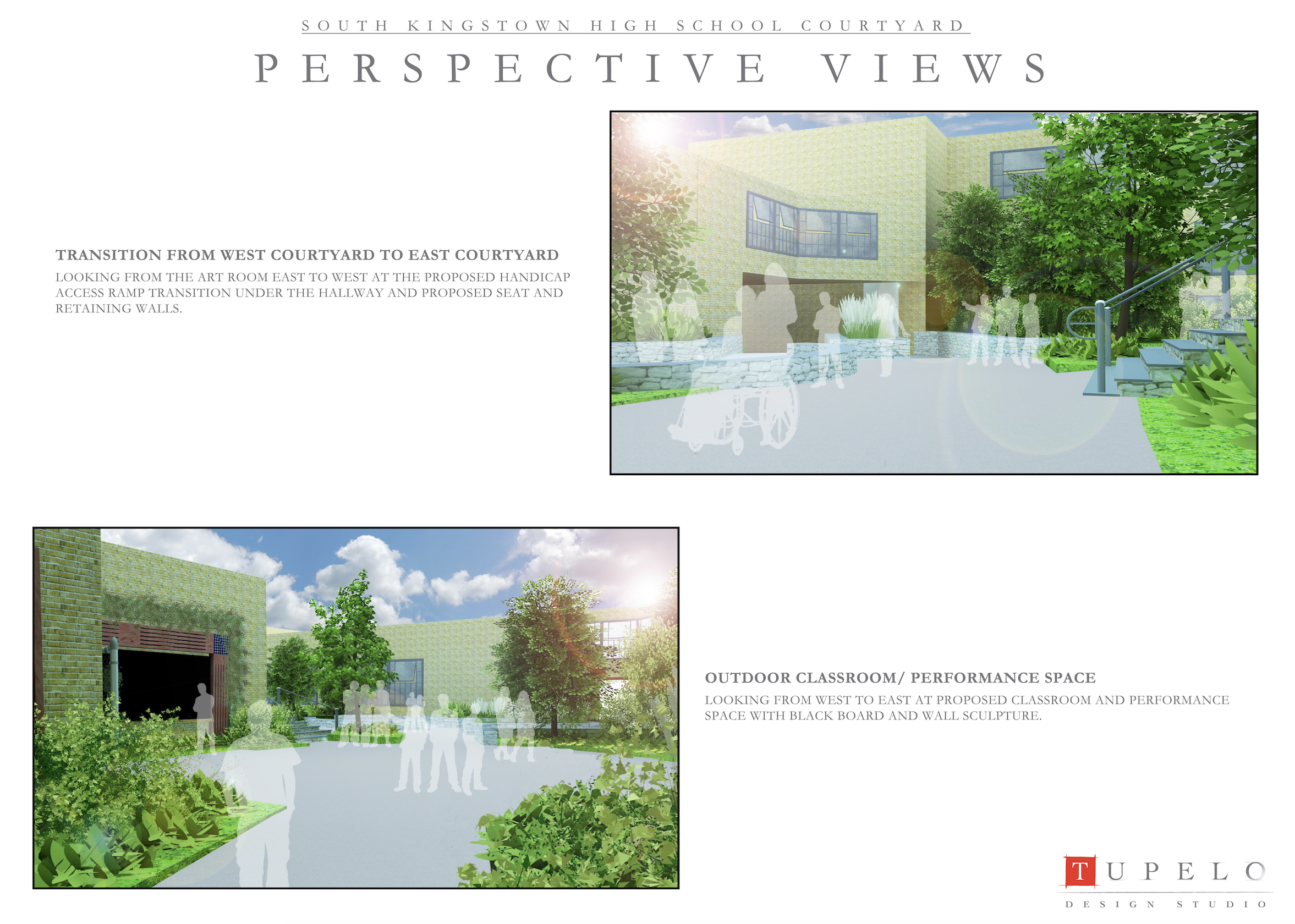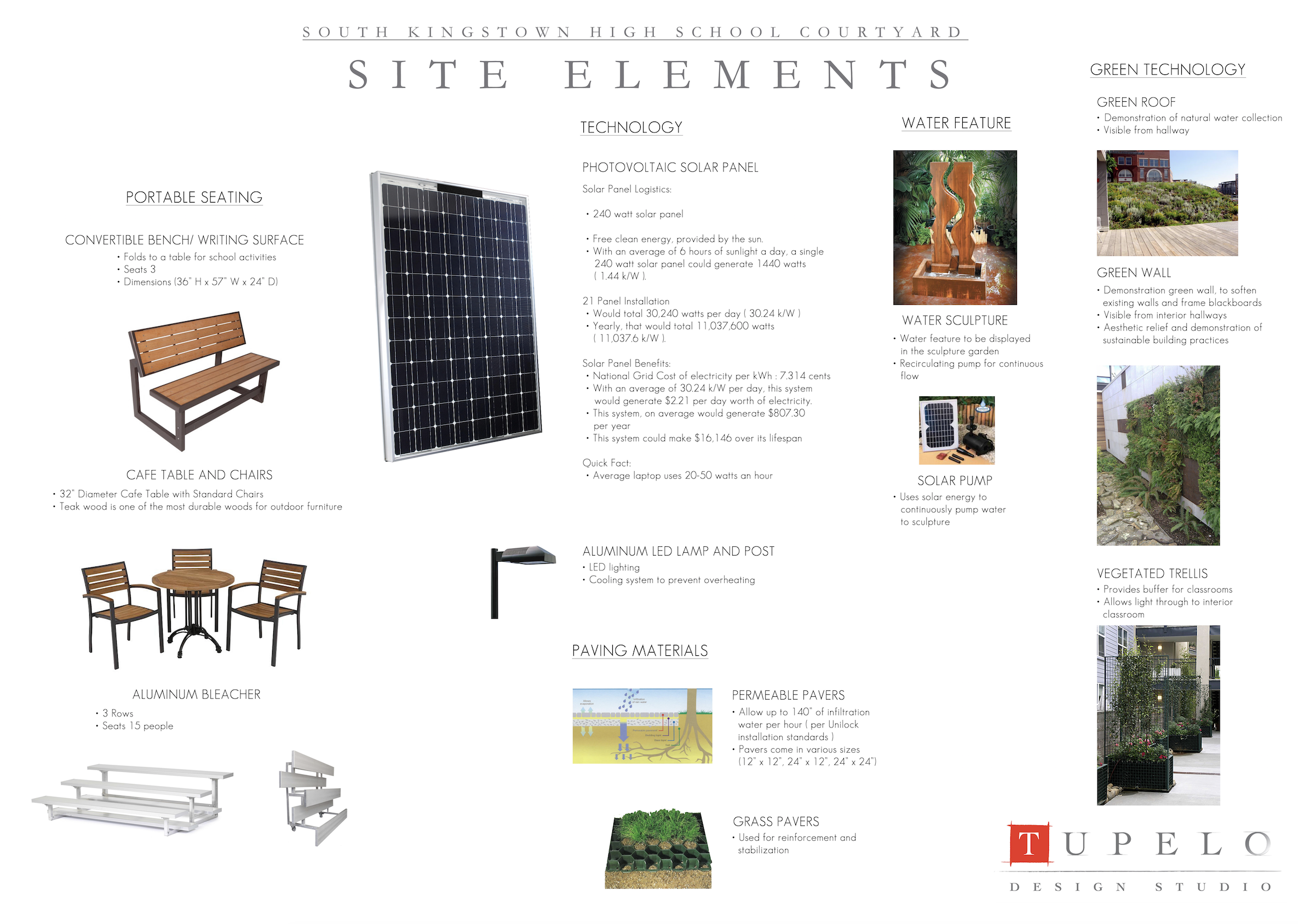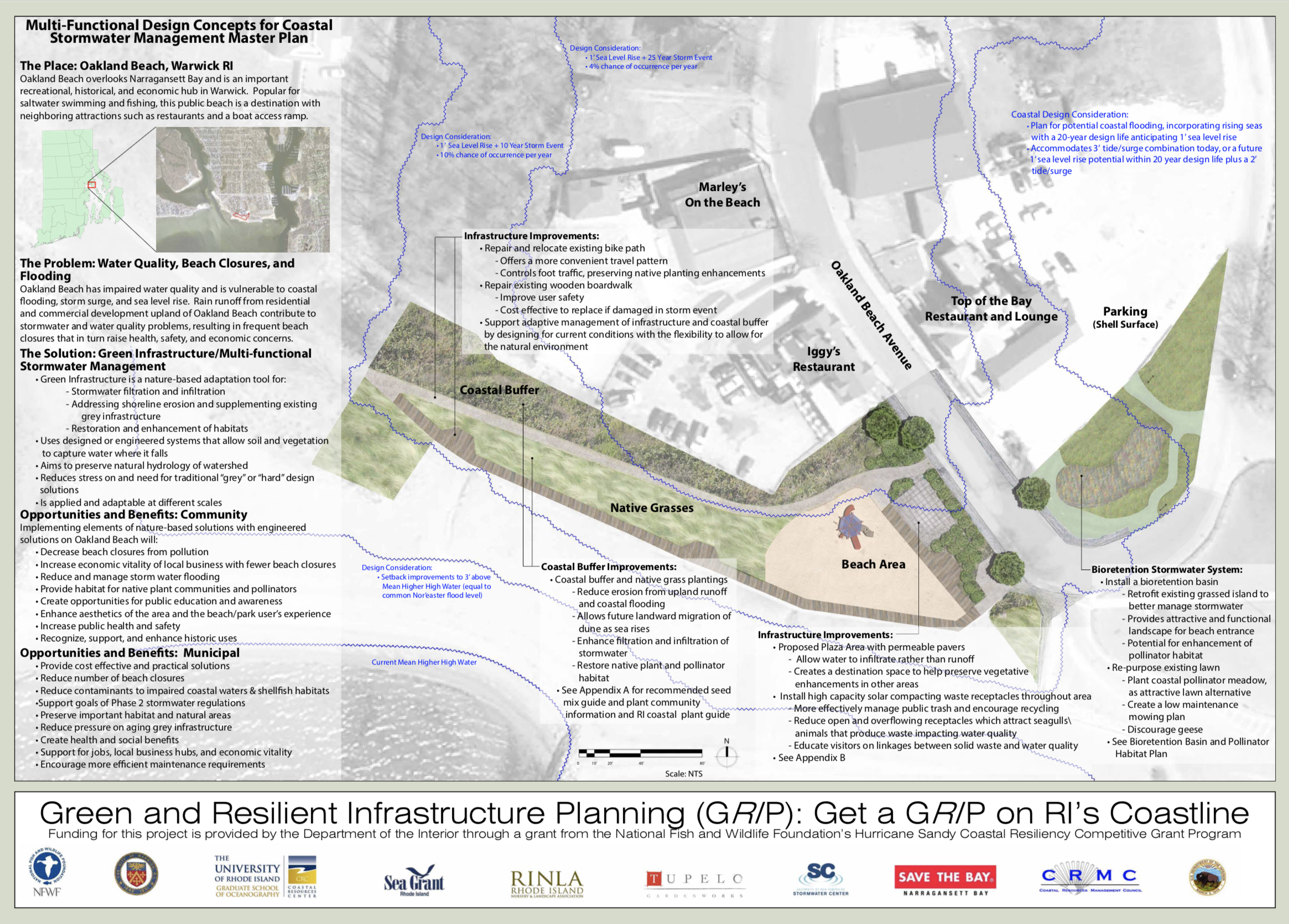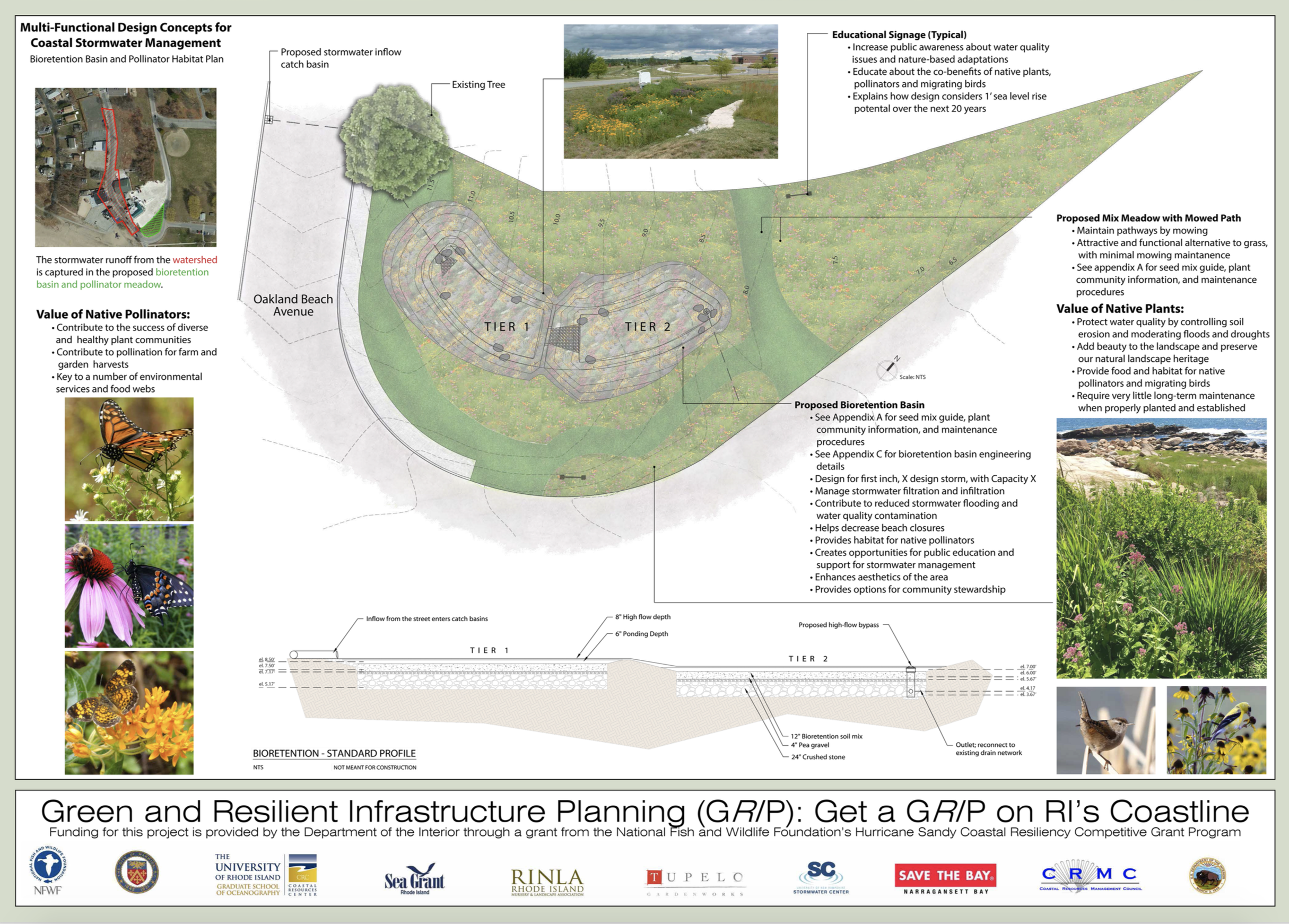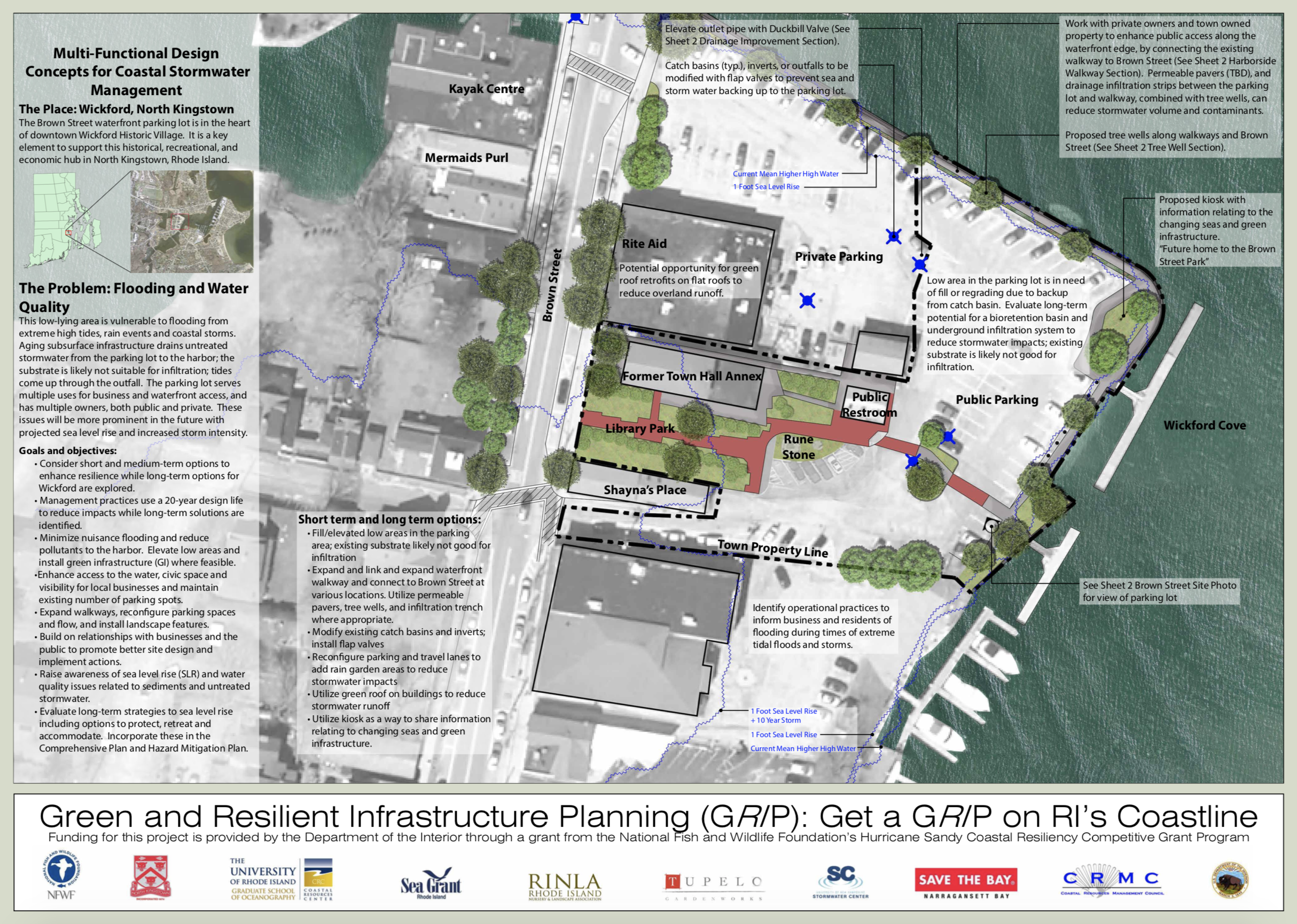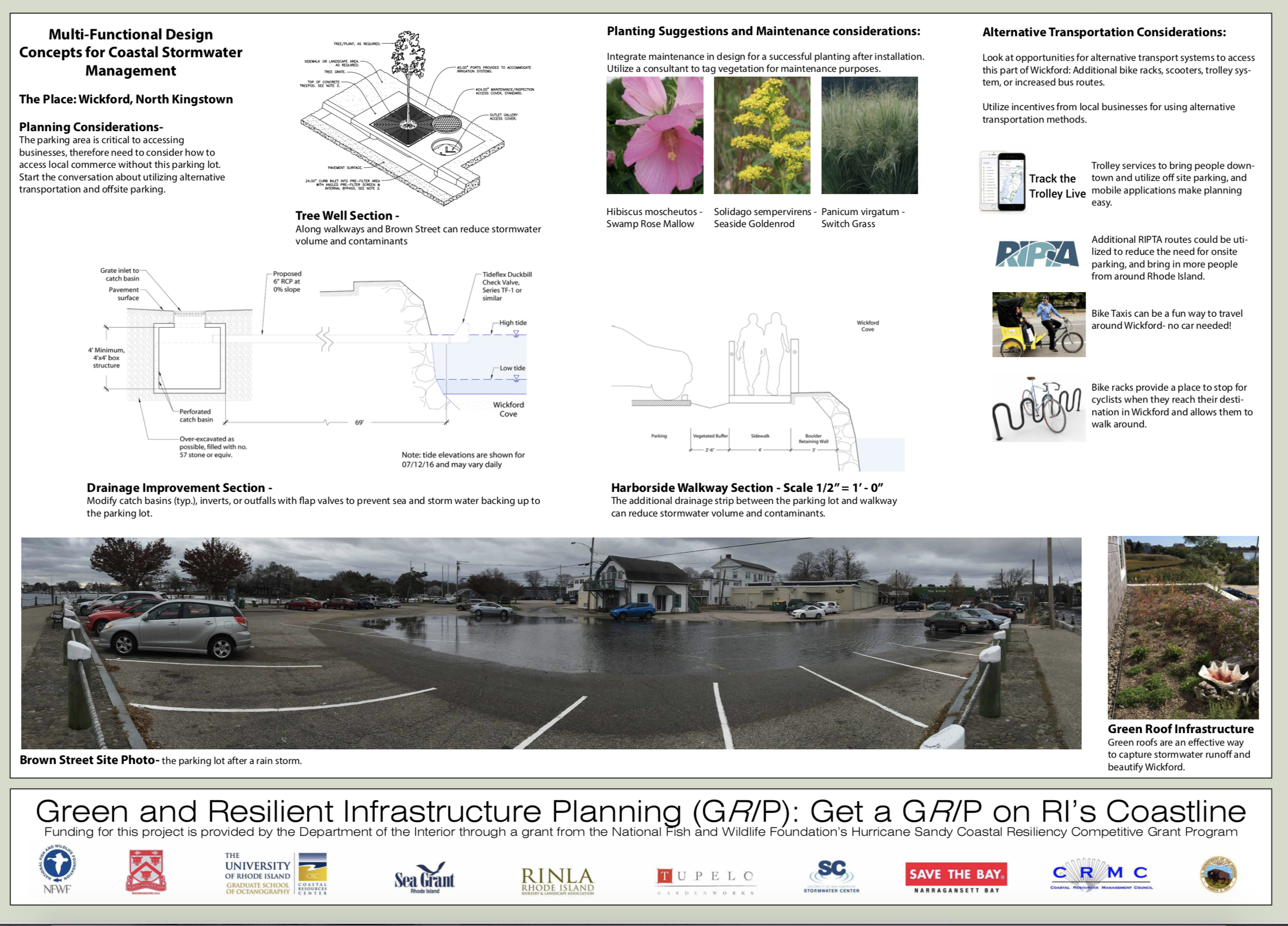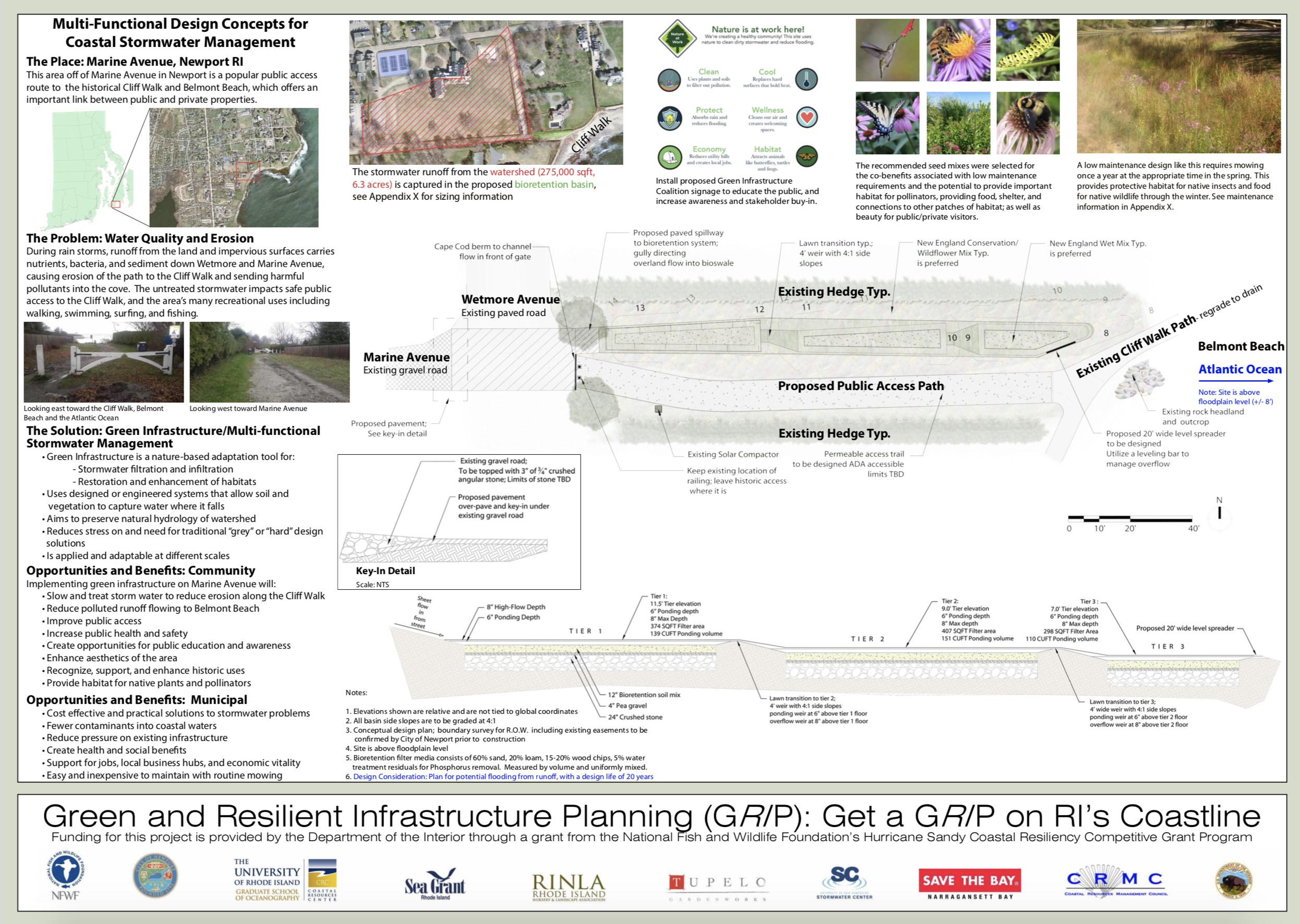Passionate About Play: Supporting Early Childhood Education
Catherine learned the value of connecting children with nature and the importance of play while raising her own children as a landscape architecture student. As a result, Catherine broadened her professional practice to include selective public design projects for schools and has partnered with LISC (Local Initiatives Support Corporation) to help early childhood educational facilities improve the quality of their outdoor play spaces through a variety of nature-based play interventions.
Passionate About Learning: Supporting Secondary Education
Often overlooked as educational resources, school grounds can provide hands-on and experiential learning environments that support curriculum in STEM, the arts and humanities as well as social, physical, and emotional development. TDS recently received an American Planning Association-RI Award for the South Kingstown High School Courtyard Master Plan, which transformed a rundown courtyard space into a series of sustainable/experiential outdoor learning classrooms.
Engaging the Public: Events to Showcase Plant Based Industries
“Events” – often pop-up or transient by design – are an important way that Tupelo Design Studio gives back to the community by helping to increase awareness and showcase the importance of “plant based industry” to the general public. The diverse businesses and supply chains that collectively make up plant based industries are a significant economic driver of and contributor to the quality of life and well being for the communities of Rhode Island. We are proud to help showcase and celebrate their many manifestations.
GRIP: Green and Resilient Infrastructure Planning
Protecting Our Vulnerable Coastlines and Communities
“GRIP” is a collaborative study of and solutions for increased resilience to vulnerable public coastal access areas threatened by sea level rise. By relying on “green infrastructure” as an alternative to traditional gray fortification strategies regenerative outcomes include improvements to stormwater quality, reduced erosion, increased coastal habitat, and increased beauty as well as public educational and recreational opportunities.






